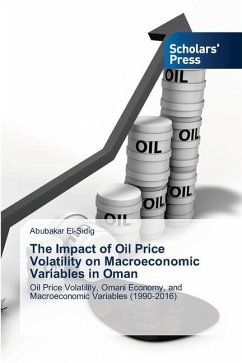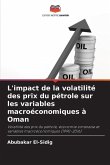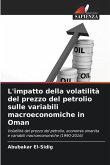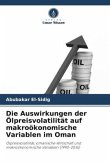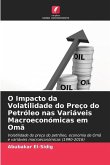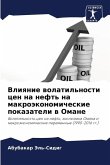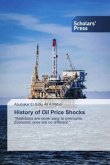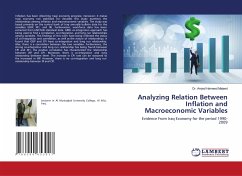Oman is worryingly reliant on its dwindling oil resources, which produce 84% of government revenue. In 2016, low international oil prices made the Omani budget deficit US$11.5 billion, or roughly 19% of GDP, yet, the budget deficit was contracted to 13% of GDP in 2017 as the Sultanate cut its subsidies. This State has scarce foreign assets and is issuing debt to shelter its deficit. Consistent with the above, this thesis aspires to ascertain the impact of such volatility on macroeconomic variables - "Government expenditure, inflation (CPI) rate, aggregate investment expenditure, money supply (M2), employment rate, and aggregate household consumption expenditure"- in the Sultanate of Oman, scoping from 1990 to 2016.The thesis employs the Autoregressive Distributed Lag (ARDL) model that succeeded in the methodology suggested by Pesaran and Shin (1999). Pesaran, Shin, and Smith (2001) have developed a version of the ARDL model as a substitute co-integration method called the error correction version. This method's employment is essential to test the presence of long-term correlations between the variables of interest.
Bitte wählen Sie Ihr Anliegen aus.
Rechnungen
Retourenschein anfordern
Bestellstatus
Storno

